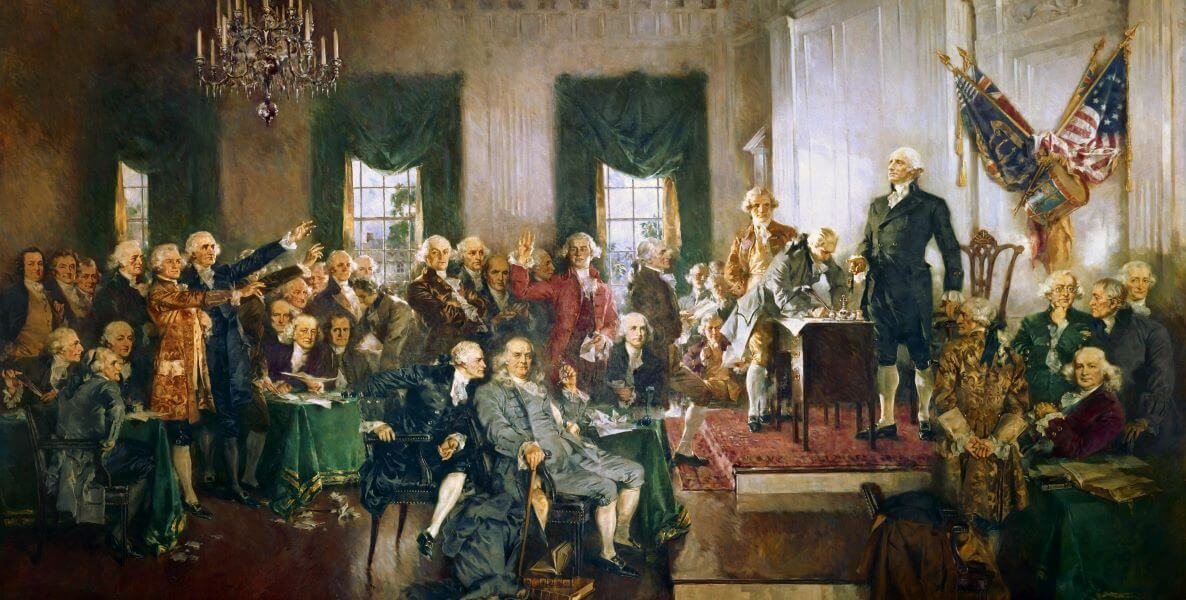Last week the United States Supreme Court rendered decisions on two of the most controversial and consequential issues in the last 50 years. It decided that the United States Constitution did not explicitly give a woman the right to have an abortion, and that it also prohibited the states from placing certain restrictions on the public carrying of handguns for self-defense.
It concluded that since the word abortion is not in the Constitution, only the individual states can legislate on the question of whether and under what circumstances abortions could be permitted. And, because the “right to bear arms” is found in the Second Amendment, the states have very limited power to restrict the right of every American to carry a handgun in public.
The “living constitution” approach … argues that the court should take into consideration modern day conditions and circumstances in determining what the language of the Constitution means and how it should be interpreted and applied.
These decisions utilize an “originalist” or “literalist” theory of constitutional interpretation. That is, in deciding constitutional questions, the Court is bound by the intentions, contemporary understandings and worldviews of the “Founding Fathers” who drafted the Constitution and Ten Amendments in 1787 and 1791.
Remember that these were all wealthy White men, mostly farmers who enslaved humans and lacked formal education. And they excluded women, Blacks, and indigenous people from the document altogether — and by its literal terms preserved racial inequality and slavery.
There were 13 states in 1791 and a largely rural and agrarian population of four million, of whom 700,000 were enslaved. There was no internet, no televisions, few newspapers, no telephones, automobiles, highway systems, railroads, or large cities — and most of the country was illiterate. There was no organized military and no police departments. Most scientific knowledge, and medicine in particular, were primitive at best. There were very few medical schools, few formally trained doctors, no antibiotics, curative drugs, anesthesia, X-rays, and no reliable techniques for the diagnosis and treatment of most illnesses.
The “arms” of the Founding Fathers’ day, the carrying of which the majority considers to be sacrosanct, consisted of highly inaccurate, single-shot flintlock handguns and long rifles. The revolver which allowed the discharge of multiple rounds was not invented until 1835. There were no automatic or semiautomatic handguns or assault rifles with large capacity magazines capable of firing hundreds of rounds in a matter of seconds at targets 300 yards away — they were not and are not used for self-defense.
The majority of the Court believes that this country, with 50 states and 332 million people of different races, ethnicities, cultures, religions, and traditions, is bound in perpetuity by what those men understood and intended 231 years ago.
Those men, who revolted against British tyranny to gain political rights, individual freedom and personal autonomy, would be repulsed at the notion that states have the right to determine what a woman does with her body. And if they had a shred of decency, they would be horrified at the mass carnage regularly caused by the proliferation of semiautomatic handguns and high-capacity assault weapons.
They will continue to be the “master” of the Constitution and deprive us of other “rights” that we have taken for granted unless we vote to take control of both houses of Congress this November and the presidency in 2024.
The approach of the conservative majority on the Court as to what is or is not protected by the literal words of the Constitution is akin to Humpty Dumpty’s claim to Alice in Wonderland in Lewis Carroll’s Through The Looking Glass. Humpty says, “When I choose a word, it means just what I choose it to mean, neither more nor less … The question is who is to be the master, that’s all.”
The majority’s decisions in these cases are examples of bigoted, right-wing political ideology masquerading as objective and nonpartisan legal analysis. They get to play Humpty Dumpty with the Constitution because Mitch McConnell stole a seat on the Court from Barack Obama, and not enough of our kind voted for Hillary Clinton to give her an Electoral College victory over an ignorant, immoral insurrectionist in 2016.
They will continue to be the “master” of the Constitution and deprive us of other “rights” that we have taken for granted unless we vote to take control of both houses of Congress this November and the presidency in 2024. They will also decide who we love, who we marry, and whether we will be safe in places of worship, stores, classrooms, nightclubs and on the streets.
Elections really do have consequences: Some are deadly, some are demoralizing, and some last for generations. VOTE. VOTE. VOTE.
Carl Singley is of counsel at the Tucker Law Group and the former Dean of Temple Law School.
The Citizen welcomes guest commentary from community members who stipulate to the best of their ability that it is fact-based and non-defamatory.
![]() RELATED STORIES ON THE FIGHT FOR OUR RIGHTS
RELATED STORIES ON THE FIGHT FOR OUR RIGHTS
WHAT’S BEING READ MOST ON THE CITIZEN RIGHT NOW
1940 oil-on-canvas painting by Howard Chandler Christy, depicting the Constitutional Convention signing the U.S. Constitution at Independence Hall in Philadelphia on September 17, 1787. Howard Chandler Christy, Public domain, via Wikimedia Commons



